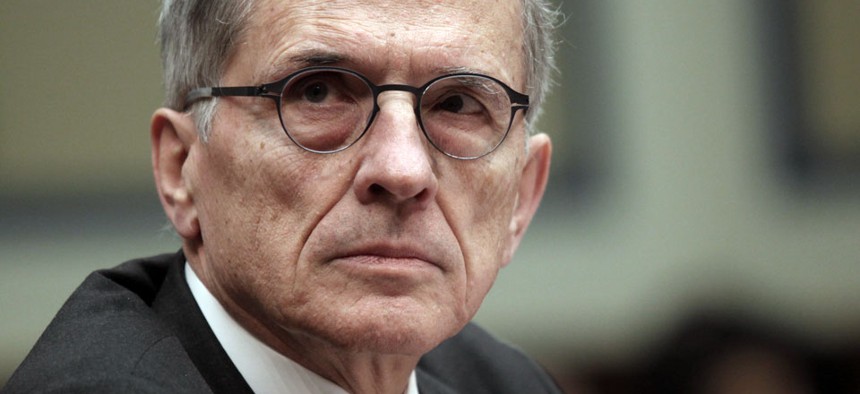Internet Providers Sue to Kill Net Neutrality

Federal Communications Commision Chairman Tom Wheeler Lauren Victoria Burke/AP
The first legal shots have been fired in the battle over Internet regulation.
Telecom companies filed a pair of lawsuits Monday in an attempt to reverse the Federal Communications Commission's new net neutrality rules.
The suits are expected to be the opening shots in a long legal war against the controversial regulations.
USTelecom, which represents AT&T, Verizon, and other companies, filed its lawsuit in the U.S. Court of Appeals for the D.C. Circuit, while Alamo Broadband, a small Texas-based wireless Internet provider, filed its suit in the U.S. appeals court based in New Orleans.
"The focus of our legal appeal will be on the FCC's decision to reclassify broadband Internet access service as a public utility service after a decade of amazing innovation and investment under the FCC's previous light-touch approach," Jon Banks, the senior vice president for USTelecom, said in a statement. "As our industry has said many times, we do not block or throttle traffic and FCC rules prohibiting blocking or throttling will not be the focus of our appeal."
The suits claim the rules are outside the FCC's authority, violate administrative law, and infringe on the companies' constitutional rights.
An FCC spokesman said the lawsuits, which were filed before the rules have even been formally published in the Federal Register, are "premature and subject to dismissal."
In their court filings, the Internet providers said they sued early in an "abundance of caution." They are worried that the court might count the 10-day window for legal challenges beginning when the FCC released the text of its decision, instead of when the rules are published in the Federal Register. The FCC's decision includes both new regulations and a "declaratory ruling," which the Internet providers said complicates the issue of when to file the challenges.
The FCC's rules bar Internet providers from blocking online content, selectively slowing down traffic, or creating any special "fast lanes" for sites that pay more. The supporters argue the rules will ensure that Internet providers can't act as "gatekeepers" and restrict access to online information or services.
The FCC first enacted net neutrality rules in 2010, but the D.C. Circuit struck them down early last year.
In an attempt to bolster the chances of the new rules in court, the FCC classified the Internet as a "telecommunications service," which grants the agency broad regulatory powers. But the Internet providers fear the decision has turned them into public utilities and will stifle their industry's growth.
NEXT STORY: The Fed 100: Believe it or not!






